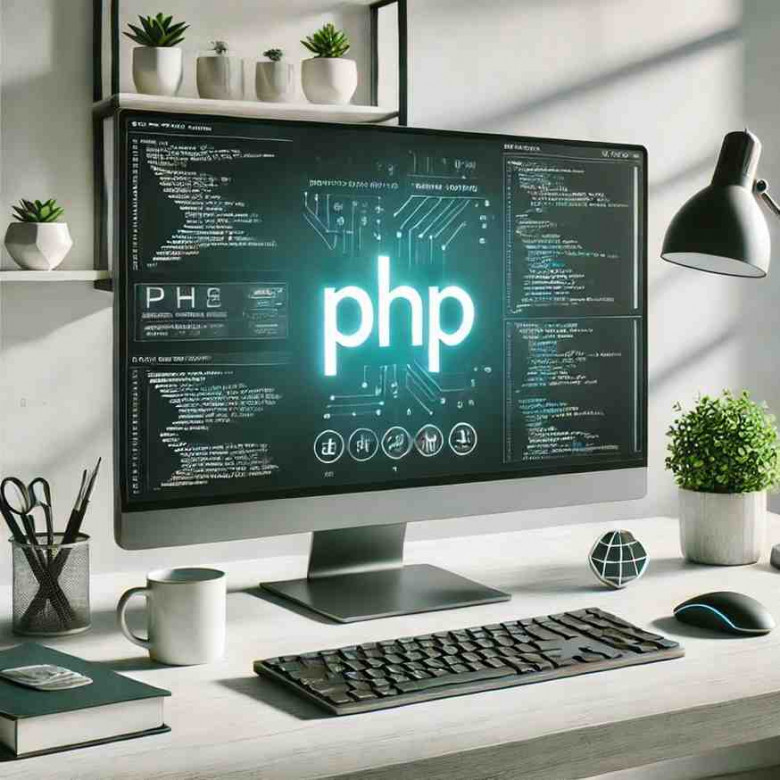views

Why PHP Developers Are Key to Successful E-commerce Projects
Hey there! 🌟 E-commerce is booming, and PHP developers are at the heart of creating dynamic, secure, and scalable platforms. From managing vast product catalogs to integrating payment gateways, PHP developers make online businesses thrive. Let's dive into why PHP is the go-to choice for e-commerce and what makes these developers indispensable.
The Role of PHP in E-commerce Development
PHP powers some of the most popular e-commerce platforms, including Magento, WooCommerce, and OpenCart. Its flexibility and compatibility with various frameworks make it ideal for creating customized online stores tailored to unique business needs. Plus, PHP's open-source nature and vast community support ensure continuous improvements and innovations.
Key Challenges in E-commerce Development
When building e-commerce platforms, developers face challenges such as:
-
Integrating secure and user-friendly payment gateways 💳
-
Managing extensive product catalogs with fast search capabilities 📚
-
Ensuring website performance during high-traffic events 🚀
-
Implementing strong security measures to protect customer data 🔐
Let’s explore how PHP developers tackle these issues with specific skills.
Core Skills for PHP Developers in E-commerce Projects
PHP developers bring a unique set of skills to the table. Here’s what makes them stand out in the world of e-commerce:
Expertise in E-commerce Platforms (Magento, WooCommerce, etc.)
Knowing platforms like Magento and WooCommerce is crucial. These systems provide out-of-the-box solutions but require customization for tailored features. For example, Magento's architecture allows developers to scale sites for businesses handling thousands of daily transactions.
Strong Understanding of Databases and Data Management
Large-scale e-commerce websites deal with vast amounts of data, from product inventories to customer orders. Developers must design efficient database schemas, optimize queries, and manage data securely. Tools like MySQL and PostgreSQL are a PHP developer's best friends for this task.
Knowledge of Payment Gateway Integration
Seamless payment experiences are critical. PHP developers need to integrate solutions like PayPal, Stripe, and custom gateways while ensuring PCI compliance. They also address currency conversions and localized payment methods for global businesses 🌎.
Additional Skills for E-commerce Success
Beyond the basics, there are additional skills PHP developers should master to excel in e-commerce projects.
Familiarity with Front-End Technologies
Although PHP is a back-end language, developers with front-end skills (HTML, CSS, JavaScript) can collaborate better with UX teams. A polished front-end ensures customers enjoy smooth navigation and quick checkouts 🛒.
Understanding Security Best Practices
Security is non-negotiable in e-commerce. PHP developers must prevent common threats like SQL injection and cross-site scripting (XSS). Techniques like parameterized queries and secure coding practices are essential for safeguarding user data.
Performance Optimization Skills
Customers expect lightning-fast websites ⚡. PHP developers optimize site performance by caching queries, compressing files, and using tools like Memcached or Redis. Faster websites not only improve user experience but also boost SEO rankings.
How PHP Developers Can Stay Ahead in E-commerce Development
The tech landscape is ever-changing, and staying updated is key. Here’s how PHP developers can continue to shine:
Continuously Updating E-commerce Knowledge
From new PHP frameworks to updates in e-commerce platforms, staying informed is vital. Subscribing to newsletters, attending webinars, and following industry blogs can keep developers in the loop.
Participating in E-commerce Communities and Networks
Networking with peers provides fresh insights and collaboration opportunities. Joining forums, attending conferences, or contributing to open-source projects can significantly enhance a developer's skillset.
Final Thoughts
The Evolving Role of PHP in E-commerce
As e-commerce grows, PHP will remain a cornerstone for building scalable and secure platforms. Whether you’re looking to hire PHP developers or upskill yourself as one, focusing on these essential skills will ensure success in this thriving industry. 🚀
Frequently Asked Questions (FAQs)
1. What are the most important skills for PHP developers in e-commerce projects?
PHP developers need expertise in e-commerce platforms, strong database management skills, and proficiency in integrating payment gateways. Additional skills include understanding front-end technologies, implementing security best practices, and optimizing website performance.
2. How do PHP developers integrate payment gateways into e-commerce platforms?
Developers use APIs from providers like PayPal, Stripe, or Razorpay to connect payment gateways. They ensure secure transactions through encryption and compliance with payment standards like PCI DSS, enabling smooth customer experiences.
3. What are the key challenges in e-commerce PHP development?
Challenges include managing extensive product data, ensuring fast page loads, integrating secure payment systems, and maintaining site security. PHP developers address these with robust coding, database optimization, and secure practices.
4. How can PHP developers optimize e-commerce site performance?
Developers use caching mechanisms, compress images, and minimize database queries to boost speed. Tools like Memcached and Redis help store frequently accessed data, reducing server load and improving user experience.
5. Why is security important in PHP e-commerce development?
E-commerce sites handle sensitive customer data like credit card details and personal information. Developers use secure coding techniques and follow security protocols to prevent breaches, ensuring customer trust and compliance with data protection laws.






















Comments
0 comment